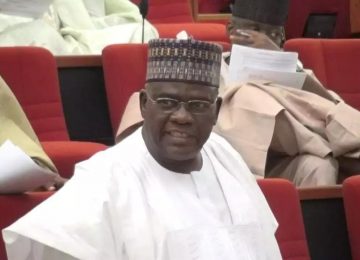Reflections Without Mirror
The Mystery of ‘Abiku’ unravelled. Part 1
Abiku in Yoruba language is referred to a child who dies and returns to the same parents repeatedly. The phenomenon of ‘Abiku’ was rampant until the late 70s. The Yoruba has special names coined for these unique phantom children, like ‘ ‘Malomo’ ( Dont go or die again’.) ‘ ‘Ajitoni’ ( he wakes up today, but he may not wake up tomorrow) ‘ ‘Bamitale’ ( stay with me until old age) ‘ Durosimi’ ( wait to bury me’ ) Durojaye ( Stay and enjoy life) Kosoko ( There is no hoe to dig the ground to bury him) and so on and so forth. The last name (Kosoko) was not to appease but to threaten him that there is nothing to bury him and they will just throw the carcass away, probably to be eaten by dog. It was believed then that this threat may work on Abiku not to want to die again if he knew he would not be given a proper burial.
Please note that ‘ Abiku’ is different from Emere (Familar spirit or Ogbanje). The
Emeres have their own unique way of tormenting their parents. They have their own group. Emere is still in existence, but Abiku had faced extinction but perhaps in some remote village. ( I would be writing on Emere in the near future.
Thus, when we were in school in those days, you could easily identify them as the ones that have made their parents weep by dying many times. Sometimes, they called them some derogatory names to humiliate them like ‘Aja’. (Dog) In my childhood days, I heard one woman calling Iya Aja (Dog’s mother), and I asked why, and they told me because her daughter has been dying and coming repeatedly. The parents therefore believed that if they called her humilliating and debased names, she would be ashamed of her behaviour and decide to stay because she would face rejection by her spiritual group. It never worked, ‘Aja’ still died anyway.
Professor Wole Soyinka even lent credence to this phenomenon by way of an outstanding poem titled ‘Abiku’ he started with the power and boast of ‘Abiku’. He gave recognition to the power and uniqueness of Abiku in accordance with Yoruba belief. He stated and I quote
“In vain your bangles cast charmed circles at my feet, I am Abiku calling for the first and repeated times;
Must I weep for goats and cowries
For palm Oil and the sprinkled ash?
Yam do not sprout in Amulets
To earth Abiku’ limbs
So when the snail is burnt in its shell ,
When the heated fragment, brand me Deeply on the breast – you must know him when Abiku calls again—-
The ripest foot was saddest ;
Where I crept, the warmth was cloying.
In silence of webs, Abiku moans, shaping
Mounds from the yolk”
The aim of the poem was to show that all the efforts of the parents of Abiku in stopping him or her from dying were in vain. He explored all the means that were tried to stop Abiku from dying but ‘Abiku’ always came on top victorious by dying as usual. Nothing could stop him.
In fairness, the herbalists and the Babalawos of the old tried their best by coming out with what they thought would be the solution and they invented’ Gbekude’ ( a spell that binds death) they would put it in the neck of the ‘Abikus’ and promised that as long as the spell was not removed from his neck or body he would not die young again. Abiku defied them, it never worked. That led to a yoruba saying ‘ Abiku so Oloogun d’eke ( Abiku has made herbalist a liar). No spell appeared to have any effect on Abiku. Sometimes, the herbalists would collect many things to appease the gods and the Abiku group to let him be, but Abiku will still die. It was a kind of double loss for the parents of ‘ Abiku’ because the babalawos will not return what they have collected to the parents, and the child would still die.
However, is there anything like ” Abiku’ at all or why is there no Abiku again in this modern days? What is responsible for those who were called ‘ Abiku’.
Despite the hypothesis that I give below, I am almost tempted to believe in this phenomenon called ‘ Abiku’. I say this much because on the death of Abiku, if the parents mark the body of Abiku, when he or she is reborn , you will see the mark at the same place where the dead child was marked. ( When the heated fragment, brand me Deeply on the breast – you must know him when Abiku calls again—-)
I have asked questions from people on this particular issue but no one was able to give me credible explanation as to why the newborn carried the same mark inflicted upon the dead child. )Investigation continues on it)
My Hpothesis
Whilst there were good Herbalists and Babalawo in those days, they did not possess sufficient medical knowledge to diagnose many things. They had no knowledge of ……
To be continued
Niyi Aborisade is a lawyer, a Human Rights Activist and a historian


